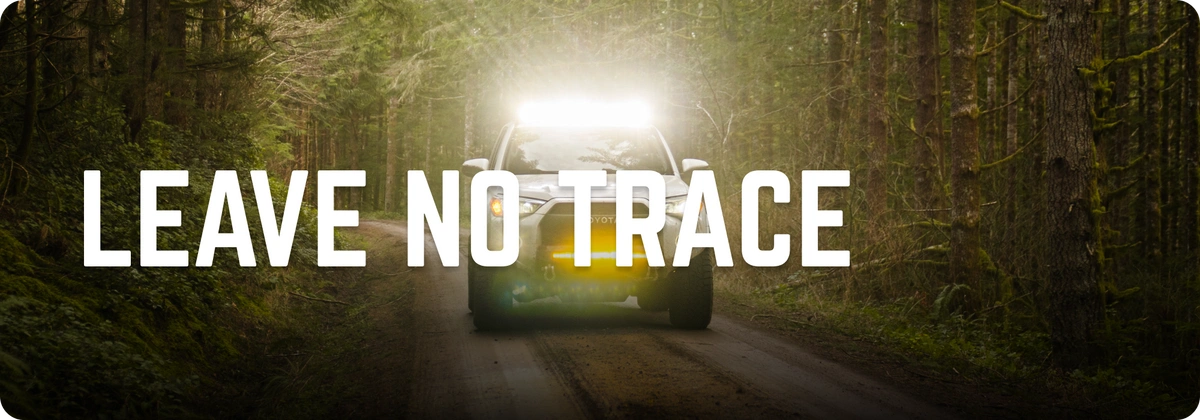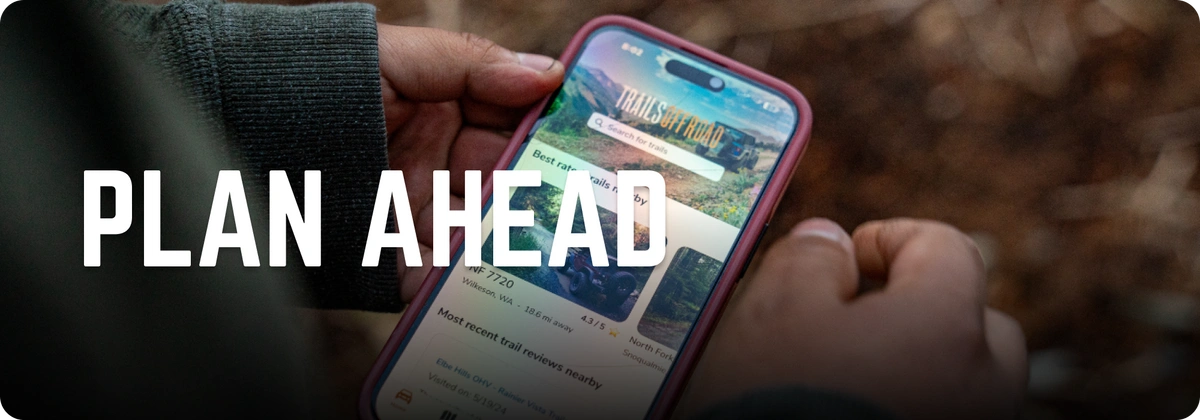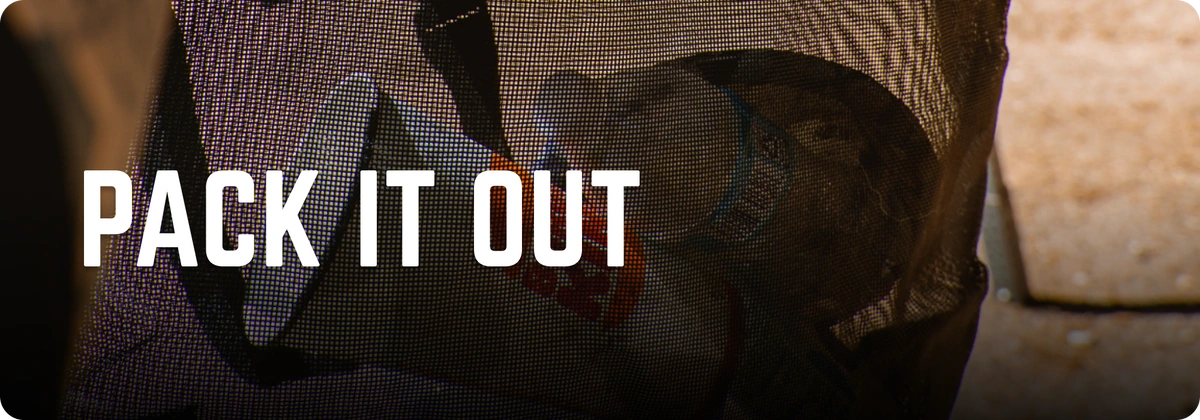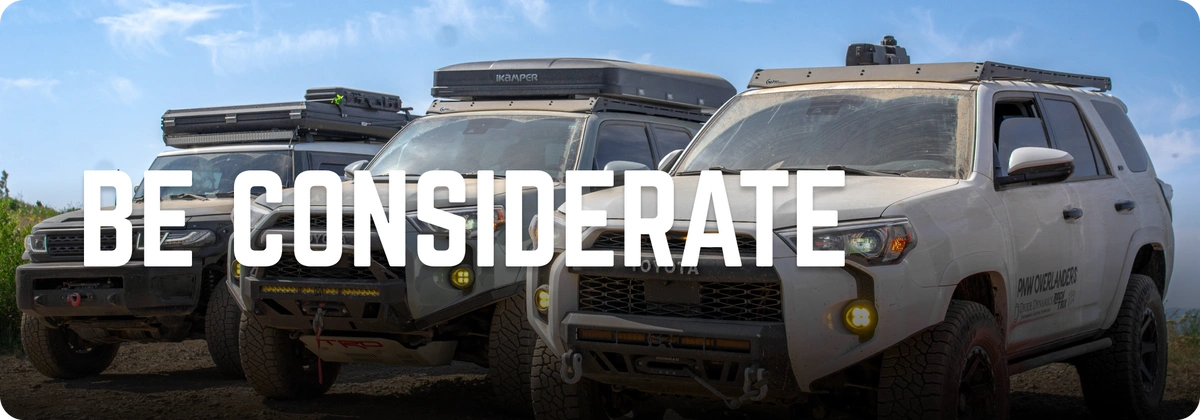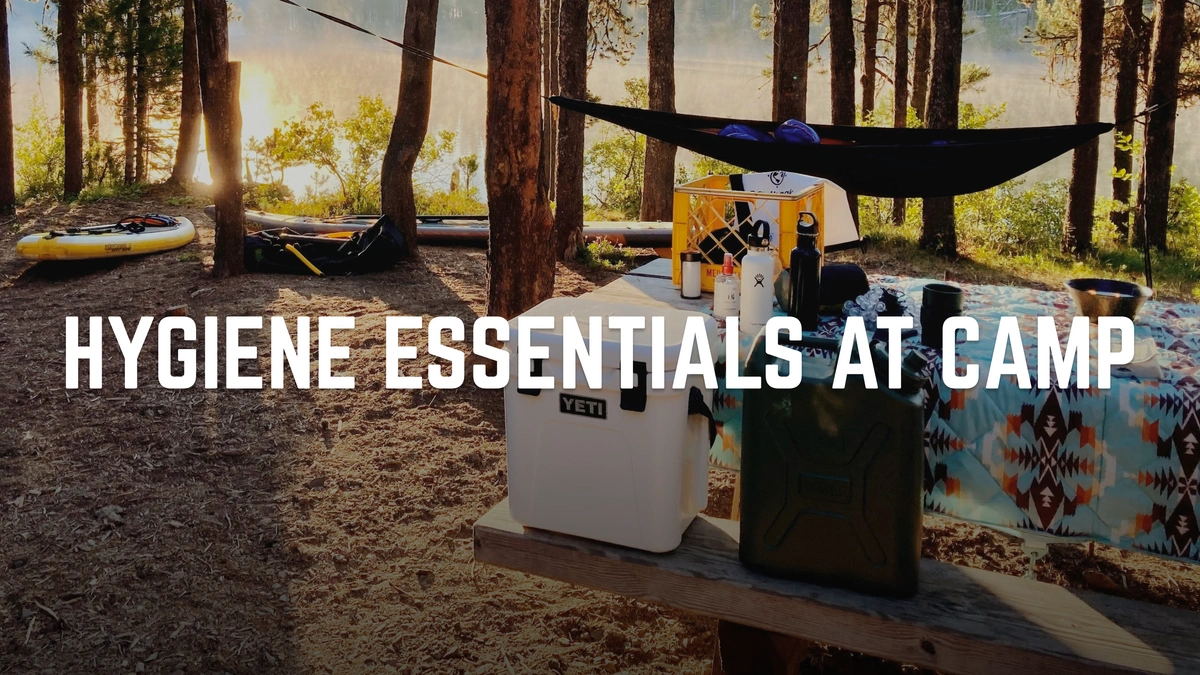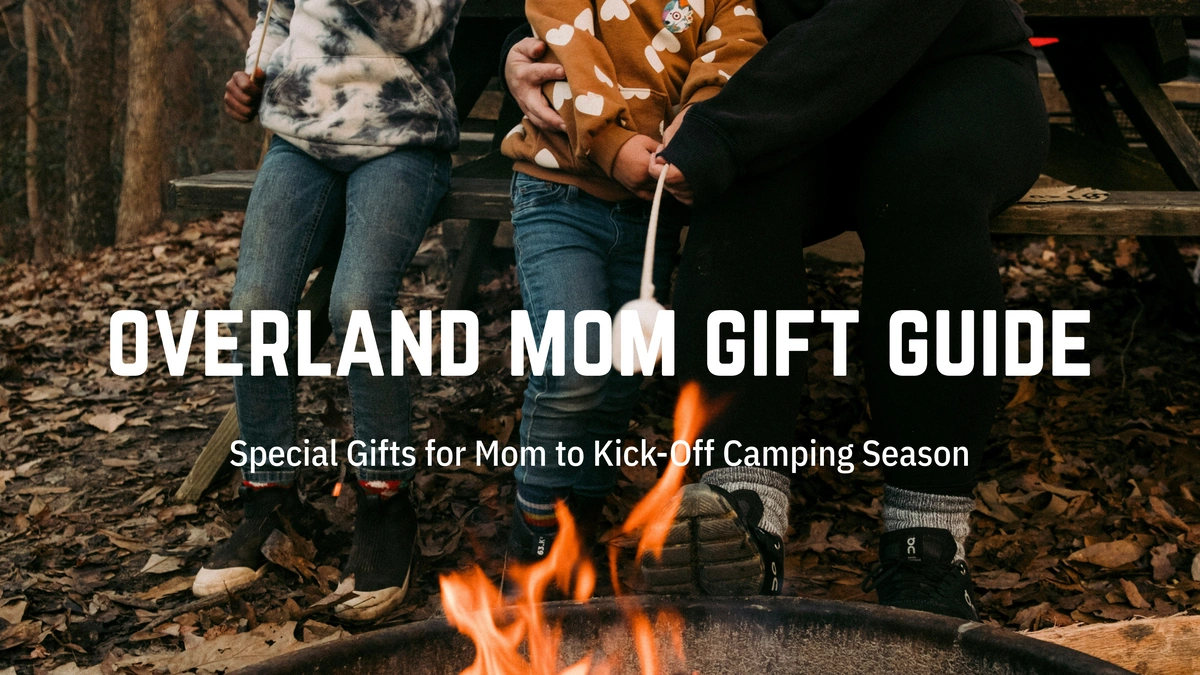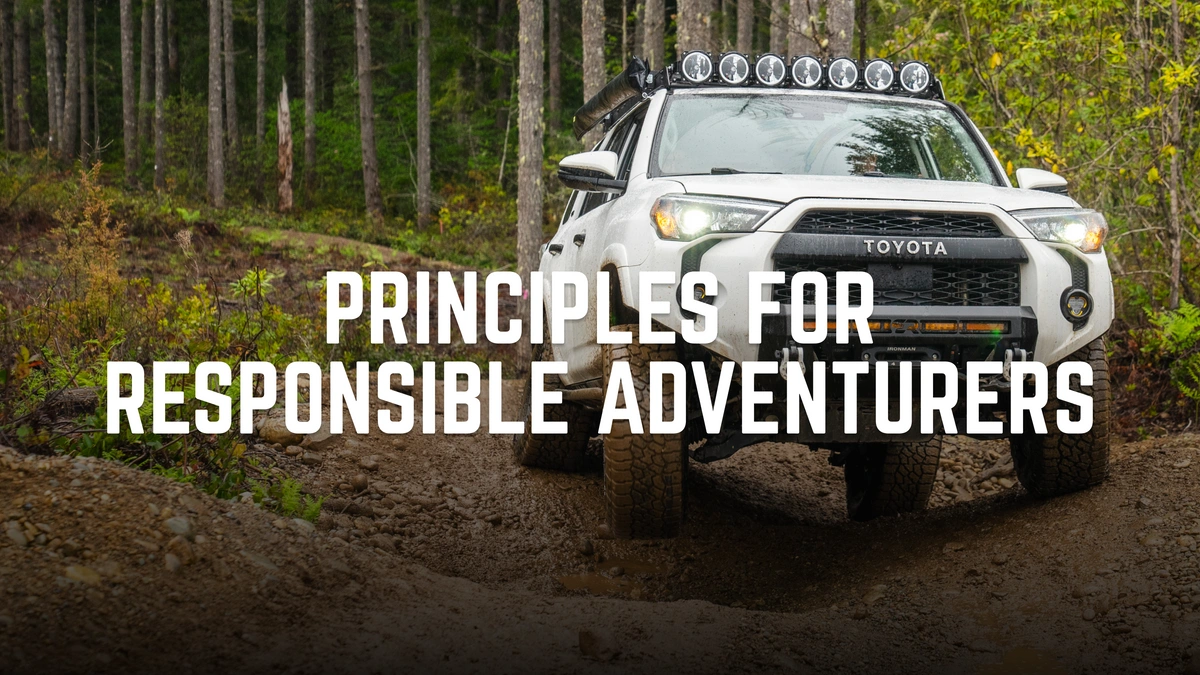
Principles for Responsible Adventurers
While exploring the outdoors offers endless excitement, it also comes with a responsibility to preserve the beauty of our natural landscapes. To some, this may be an easy task to accomplish but there are still those that lack the education to be responsible out on the trails and that is causing many areas to shut down and remove public access.
For those who need a reminder of the importance of maintaining a consistent level of responsibility when enjoying nature, we have some valuable information to prepare you to hit the trails.
Don’t forget that every action we take plays a pivotal role in protecting the trails we love!
Leave No Trace
The worst thing you can do when camping is leave a permanent mark on the environment. To avoid this, it’s best to have a basic understanding of the phrase "Leave No Trace.”
The short version is it's about respecting nature and minimizing our impact so future generations can enjoy these spaces just as much as we do. But there is a lot more to this.
Whether hiking, camping, or off-roading, adhering to Leave No Trace principles ensures that you leave the wilderness as you found it or even better.
So, how can you practice leaving no trace? It starts with proper planning and preparation. Before even heading out on the trail, consider how you can minimize your footprint. This may involve packing light and bringing as much reusable gear as possible. You can also plan meals that can be packed in reusable containers to minimize waste. You’ll also want to do some research on the trails that you want to explore. Make sure that they are suitable for your group size and that are safe for your vehicles.
Once on the trail, be mindful of your surroundings. Avoid disturbing vegetation, wildlife habitats, and historical artifacts. Stay on designated trails whenever possible to avoid any destruction to the surrounding areas. If you encounter trash left behind by others, do your part to pack it out and dispose of it properly.
While it's great to make lasting memories on your adventures, it's just as important to ensure those memories don't harm the places you visit. We all want to enjoy nature without messing it up for others. So, while you're out exploring, remember to tread lightly and leave the beauty of the area intact for others to enjoy, too.
Plan Ahead
Ensuring responsible behavior begins with thorough preparation for your journey. This means packing the right gear and camping essentials and planning your route to ensure safety and minimize environmental impact.
When you’re out in nature, it’s important to remember that many ecosystems are very delicate and cannot be disturbed without negative consequences. To minimize your impact, consider these practices:
-
Opt for eco-friendly products.
-
Clean up after yourself.
-
Choose camp spots that won't disturb wildlife habitats.
-
Ensure your gear, especially anything involving fire, is suitable for the area.
Planning ahead also means mapping out your route beforehand, which is probably the most critical step. While many off-road areas are on public land, it's essential to avoid encroaching on private property. Always do some research prior to heading out to ensure that your planned trail is public property.
You will also want to assess the safety and difficulty of your chosen route, including checking weather conditions and determining the level of difficulty, to ensure a smooth and secure journey.
For those unfamiliar with available areas, Trails Off-Road offers an easily accessible app with thousands of detailed maps across the country. These maps provide essential information such as waypoints, difficulty levels, trip lengths, and even planned camp spots, complete with additional trail photos. Trails Offroad offers a 100% guarantee that their trails are safe for all to explore.
Dispose of Waste Properly
Proper waste disposal is non-negotiable. This means packing out all trash that you bring into camp. To minimize waste on the trails, consider bringing reusable products such as water bottles, cloth napkins, and reusable utensils.
If you plan on bringing any soaps, opt for biodegradable soap for cleaning dishes. Dispose of wastewater away from water sources, ensuring it doesn't contaminate the environment.
When it comes to carrying out trash, bring smell-proof bags to contain odors and prevent leaks. Consider installing a spare tire carrier bag on the exterior of your vehicle to transport larger amounts of trash securely. These carriers not only keep your vehicle clean but also prevent litter from scattering along the trail. And if you find any trash on the trail, make sure to pick it up.
Human waste should be buried at least six to eight inches deep and 200 feet away from water sources. Use a small shovel or trowel to dig a hole and cover it completely afterward. However, always check park and forest regulations, as these may be different depending on where you are traveling.
Be Considerate of Others on the Trails
You’ll find that many dispersed camping sites can accommodate multiple groups, and for that reason it's crucial to consider the proximity of others. Of course, being considerate isn’t limited to just the campsite; it includes going out on the trails as well.
Camp etiquette extends to all aspects of your outdoor experience. Minimizing noise pollution during late hours and early mornings ensures that everyone can enjoy the tranquility of nature undisturbed.
Similarly, when navigating trails, it's important to be respectful of other vehicles and individuals. Maintaining a safe speed and yielding to others when necessary ensures safety on the trails.
Respecting wildlife is just as important as considering fellow humans. Observing animals from a safe distance minimizes disruption. Plus, it’s a much safer way to get to enjoy their presence. And don’t forget, always ensure that your campsite does not intrude on an animal's habitat.
When it comes down to it...
We're privileged to experience the wonders of nature firsthand. But with this privilege comes a duty to tread lightly and leave no trace behind. By adopting responsible practices and embracing positive habits, we can ensure that our off-road adventures have a positive impact on the environment.
Above all, this is a group effort. While it's important for each of us to do our part individually, it's even more essential for us to come together as a community. If we all want to continue enjoying the trails, it's imperative that we all uphold responsibility while exploring.
And if you’re looking to get out this summer don’t forget to check out Trails Offroad! Our user-friendly platform provides all the information you need about the trails you're considering. It's more than just a tool for enhancing off-road experiences; it also promotes mindfulness on the trails.
